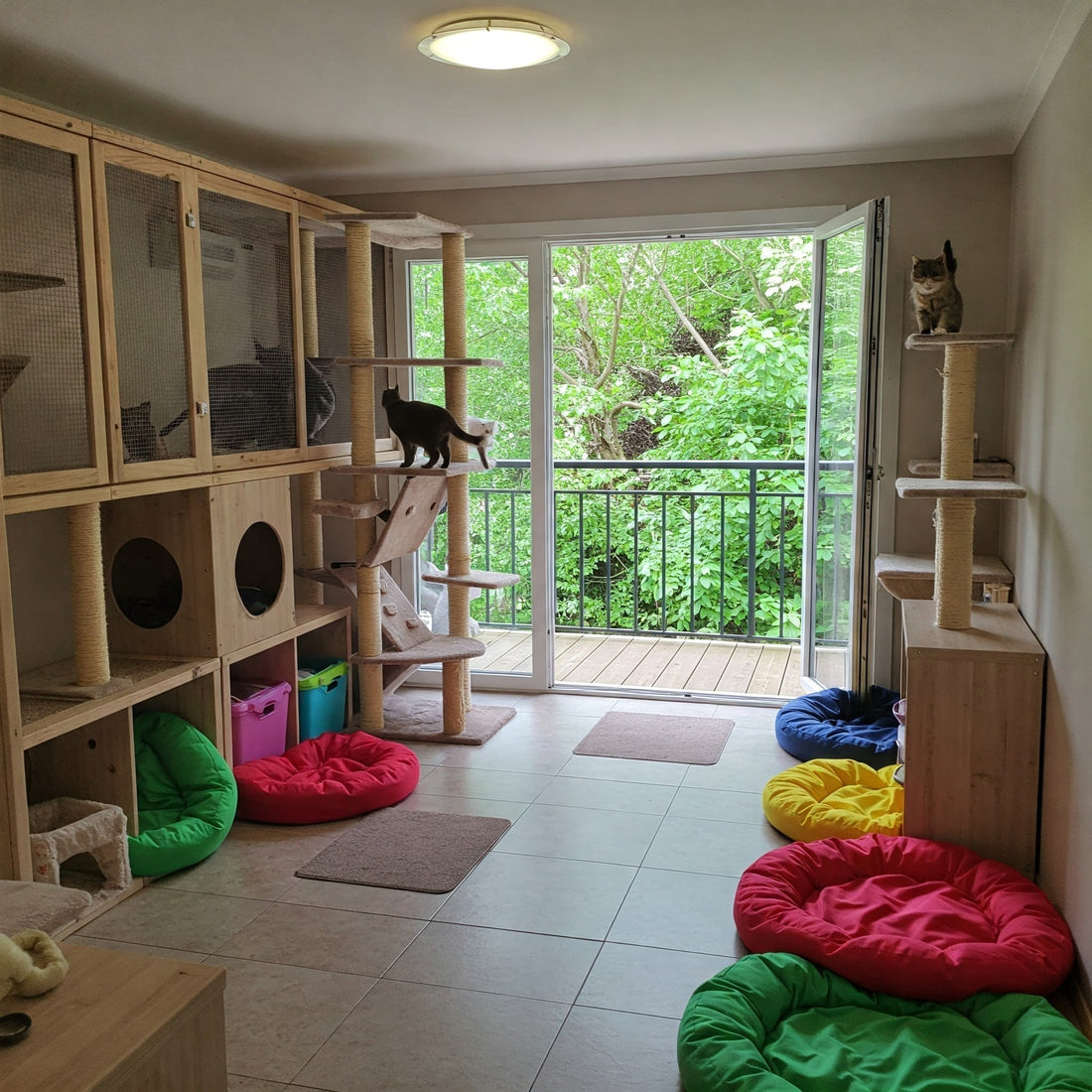
Finding Cat-Friendly Accommodations: Hotels, Rentals, and More
Share
Traveling with a cat requires more than just packing their favorite toys and snacks—it means finding accommodations that welcome feline guests with open arms. Unlike dogs, who are more commonly accepted in pet-friendly spaces, cats often face stricter restrictions or additional fees. Whether planning a weekend getaway, an extended vacation, or a permanent move, knowing where to look and what to ask can make the difference between a smooth trip and a stressful ordeal.

How Can I Find Pet-friends Hotels That Welcome Cats During My Travels?
The first step in securing cat-friendly lodging is understanding that not all "pet-friendly" establishments treat cats and dogs equally. Many hotels, vacation rentals, and apartment complexes advertise pet policies that primarily cater to dogs, leaving cat owners to navigate hidden fees, size restrictions, or outright bans. Calling ahead to confirm a property's specific rules regarding cats can prevent last-minute surprises. Some places may allow cats but impose limits on the number permitted or require health documentation, so clarity is key before booking.
Adjustable Capsule Cat Travel Backpack
Hotels remain one of the most common options for travelers with cats, but the level of feline hospitality varies widely. Major chains like Kimpton, La Quinta, and Red Roof Inn are known for their cat-friendly policies, often welcoming pets without additional fees. Boutique hotels may offer more personalized accommodations, such as in-room litter boxes or designated play areas. However, even within the same brand, individual locations can have different rules, so verifying details with the specific hotel is essential. Some luxury hotels go above and beyond, providing gourmet cat menus, plush bedding, or even cat-sitting services for guests who need to step out.
Vacation rentals through platforms like Airbnb and Vrbo often present more flexibility for cat owners. Unlike hotels, these properties frequently feature full kitchens and separate living spaces, making it easier to maintain a cat’s routine. When searching listings, using filters for "pet-friendly" stays is just the beginning—reading the fine print helps identify any cat-specific restrictions. Some hosts may charge extra cleaning fees for pets, while others might prohibit cats on furniture or require proof of vaccinations. Messaging hosts directly to explain your cat’s temperament and habits can ease concerns and secure approval.

For those planning longer stays or relocating, extended-stay hotels and corporate housing can be ideal solutions. Brands like Staybridge Suites or Extended Stay America often accommodate cats with fewer restrictions than traditional hotels. These options provide home-like amenities, such as kitchenettes and laundry facilities, which help cats adjust more comfortably. Corporate housing providers sometimes offer fully furnished apartments with pet-friendly leases, though deposits and monthly pet fees may apply. Checking whether these fees are refundable or negotiable can save money in the long run.
Apartment hunting with a cat introduces another layer of complexity, especially in competitive rental markets. While dogs frequently face breed or weight restrictions, cats are more likely to encounter blanket bans or steep pet rents. Seeking out cat-friendly buildings from the start—rather than trying to negotiate exceptions—saves time and frustration. Private landlords may be more flexible than large management companies, particularly if you offer references from previous landlords attesting to your cat’s good behavior. Presenting your cat as clean, well-behaved, and spayed/neutered can also help sway hesitant property owners.
Some travelers prefer specialized pet-friendly resorts or bed-and-breakfasts designed with animals in mind. These niche accommodations often feature enclosed outdoor spaces, climbing structures, or even on-site veterinarians for peace of mind. While less common than standard hotels, they provide an environment where cats can thrive rather than simply being tolerated. Researching these options early is crucial, as they tend to book quickly, especially during peak travel seasons.

Regardless of the accommodation type, preparing your cat for travel is just as important as finding the right place. Bringing familiar items like their bed, toys, and litter box helps reduce anxiety in new environments. Pheromone sprays or calming collars can ease stress during the transition. Ensuring your cat’s carrier is comfortable and secure makes transportation smoother, whether by car or plane. For international travel, researching quarantine laws and required health certificates prevents border-crossing complications.
Understanding cancellation policies is another critical aspect of planning. Unexpected changes in itinerary can happen, and pet-friendly accommodations often have stricter cancellation rules than regular bookings. Opting for properties with flexible policies or purchasing travel insurance that covers pet-related cancellations provides a safety net. Some hotels and rentals may allow last-minute changes if a cat-related issue arises, but this is rarely guaranteed without prior agreement.
The financial aspect of traveling with a cat should not be overlooked. Pet fees can range from nominal one-time charges to substantial daily rates, significantly impacting travel budgets. Comparing these costs across different accommodations helps identify the most economical choice. Some loyalty programs or membership clubs offer discounts on pet fees, so checking for available perks is worthwhile. In vacation rentals, negotiating fees—especially for longer stays—can sometimes lead to reduced rates or waived charges.

For cat owners who prefer not to leave their pets behind but worry about their comfort, alternatives like pet-centric travel agencies or relocation services exist. These specialized services handle everything from booking cat-friendly hotels to arranging ground transportation, taking the guesswork out of planning. While more expensive than independent arrangements, they provide peace of mind for those unfamiliar with traveling alongside their feline companions.
Ultimately, finding cat-friendly accommodations requires patience, research, and flexibility. The growing number of travelers with pets has led to increased options, but cats still face more limitations than dogs in many cases. By knowing where to look, asking the right questions, and preparing thoroughly, cat owners can ensure their pets enjoy the journey as much as they do. The reward is stress-free travel where both human and feline companions feel welcome, making every trip—whether across town or across the country—a pleasant experience for all.

